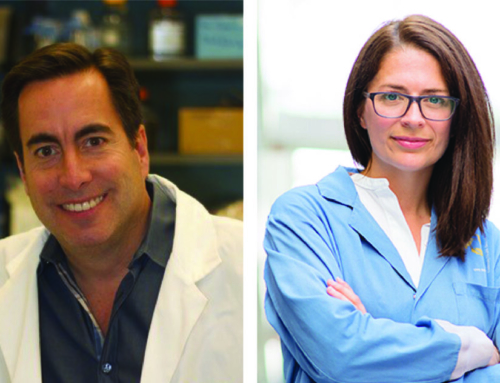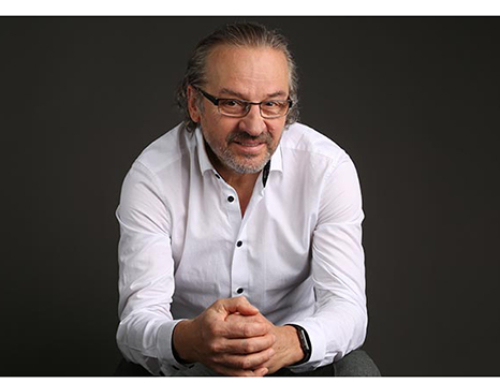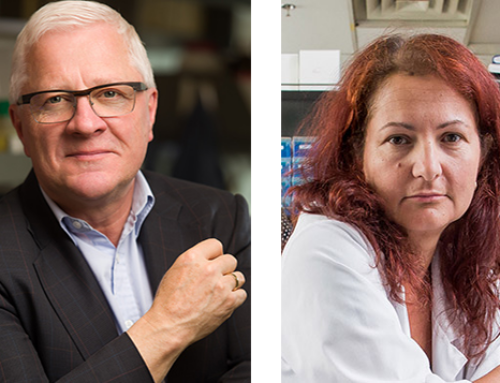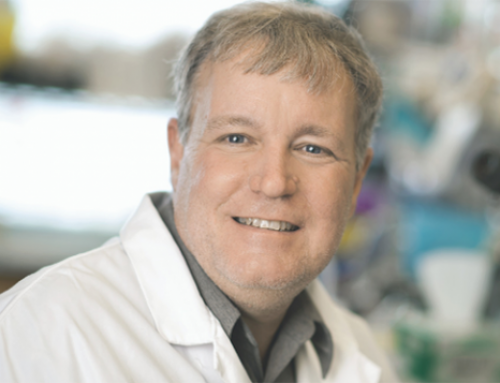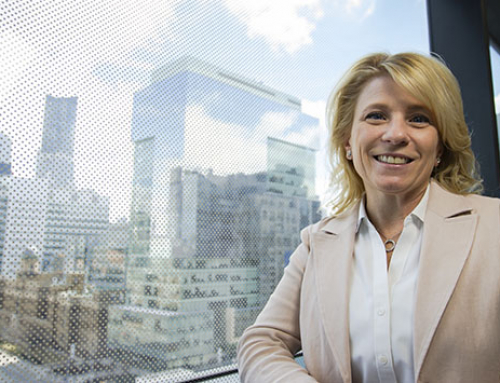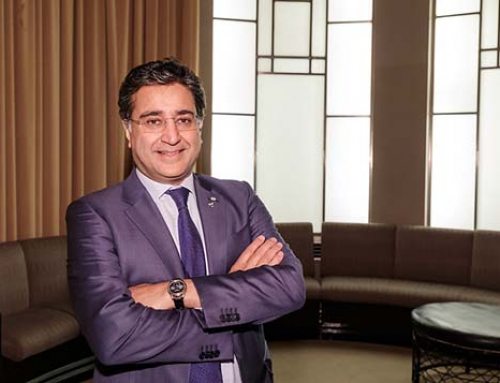
Gordon Keller, director of the McEwen Stem Cell Institute and a senior scientist at The Princess Margaret Cancer Centre at University Health Network, leads a team of researchers that are getting closer to clinical trials for their cell-based therapies for liver disease.
Gordon Keller didn’t set out to study liver cell development when he began working with pluripotent stem cells.
But as his lab was developing strategies to generate different functional cell types from these stem cells, they discovered a method to produce liver cells in the Petri dish. With this advance, he and his group soon started to think about how they could use the liver cells themselves. That’s when they began exploring the groundbreaking idea of developing a cell-based therapy to treat liver disease.
Now, with an investment from Medicine by Design, Keller and a cross-disciplinary team of experts are close to doing just that. The team is working toward repairing diseased livers through the transplantation of liver cells made from pluripotent stem cells, cells that have the capacity to turn into any specialized cell in the human body, which could lead to new treatments for liver failure.
“For patients who are struggling with end-stage liver disease and have no transplant option, the restoration of liver function through the transplantation of stem cell–derived liver cells would have a life-changing impact,” says Keller, who is director of the McEwen Stem Cell Institute and a senior scientist at The Princess Margaret Cancer Centre at University Health Network (UHN).
Keller’s team is one of 12 at the University of Toronto (U of T) and its affiliated hospitals that are sharing a total of $21 million in funding from Medicine by Design over three years for large-scale, multi-disciplinary research projects aimed at advancing regenerative medicine. Funded by a $114-million grant from the Canada First Research Excellence Fund, Medicine by Design is a strategic research initiative at U of T and its affiliated hospitals that is working at the convergence of engineering, medicine and science to catalyze transformative discoveries in regenerative medicine and accelerate them toward clinical impact.
During the first three years of Medicine by Design, Keller helmed a team that worked on generating functional liver cells from pluripotent stem cells. Now, the team is testing these cells in animal models, and hopes to soon have therapies ready for clinical testing.
Keller’s team envisions two potential therapeutic approaches. One is to directly transplant the cells into a diseased liver to repair whatever cell types are damaged. The other approach is engineering parts of the liver and then transplanting those into a patient. Keller adds the team is working on engineering simple parts such as the bile duct to transplant. The team hopes to engineer more complex functional liver tissue in time, with the ultimate goal of being able to completely replace a dysfunctional liver.
Keller, who is also a professor at the Department of Medical Biophysics at U of T, credits Medicine by Design’s support for bringing together a varied team of experts together. “Medicine by Design has been a catalyst for collaborative efforts in the regenerative medicine community in Toronto. It’s allowed us to bring together a team that had never really worked together, and now works exceptionally well together.”
This team includes Gary Bader, a professor at U of T’s Donnelly Centre for Cellular and Biomolecular Research; Christine Bear, a senior scientist at The Hospital for Sick Children; Axel Guenther, an associate professor in the Department of Mechanical and Industrial Engineering at U of T; Sonya MacParland, a scientist at the Toronto General Hospital Research Institute (TGHRI) ; Ian McGilvray, a transplant surgeon at UHN and a senior scientist at TGHRI; Shinichiro Ogawa, an affiliate scientist at the McEwen Stem Cell Institute at UHN; and Molly Shoichet, a University Professor in the Department of Chemical Engineering & Applied Chemistry and the Institute of Biomedical Engineering at U of T.
Making sure the important discoveries his team makes are on the path toward being available to patients is a focus of Keller’s, and he has a track record of success in this area. In 2016, Keller and Michael Laflamme, a clinician-scientist at the McEwen Stem Cell Institute, commercialized their stem cell production process with the support of Bayer AG, a biopharmaceutical company, and Versant Ventures, a venture capital firm, through the launch of BlueRock Therapeutics. BlueRock Therapeutics, which now employs more than 80 people in Toronto alone, received $225 million USD of financing, representing one of the largest-ever series A financings for a biotechnology company. In 2019, BlueRock Therapeutics reached a milestone in its success when it was acquired by Bayer AG.
It’s partnerships like the ones that launched BlueRock Therapeutics that will ensure Keller’s team’s liver disease therapies get to clinical trials, and eventually to patients. The prospect of life-changing regenerative medicine therapies becoming a reality is what motivates the team, says Keller.

